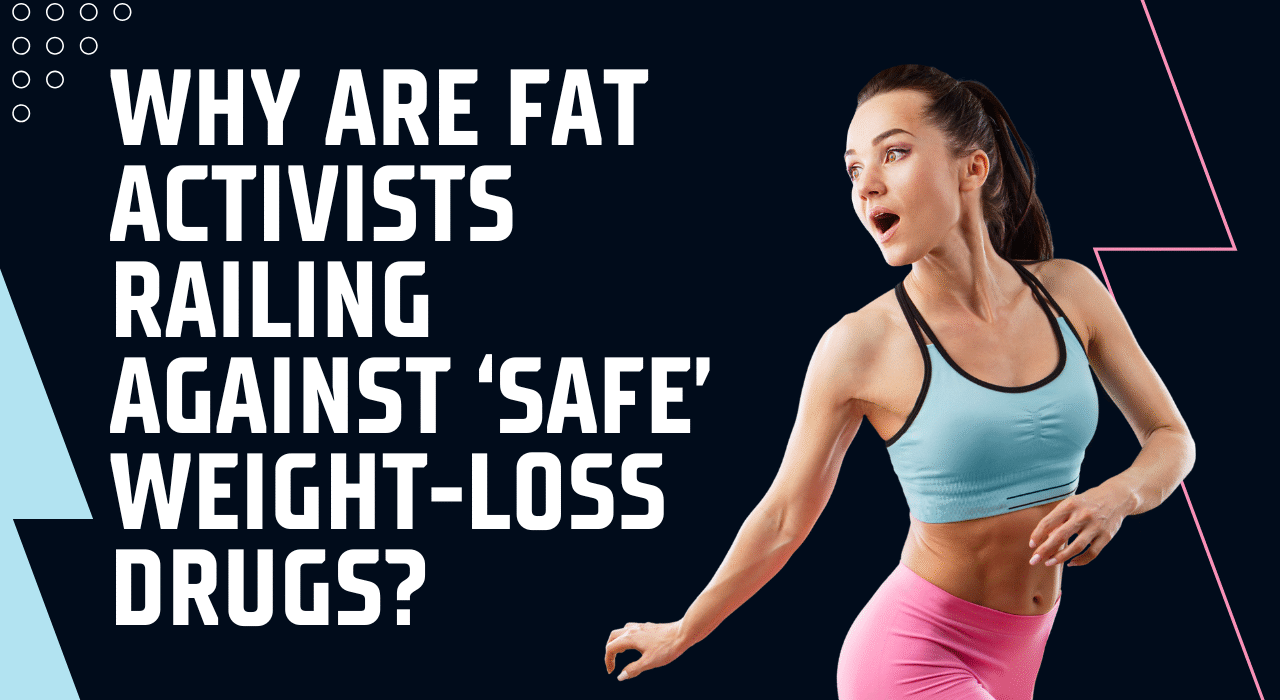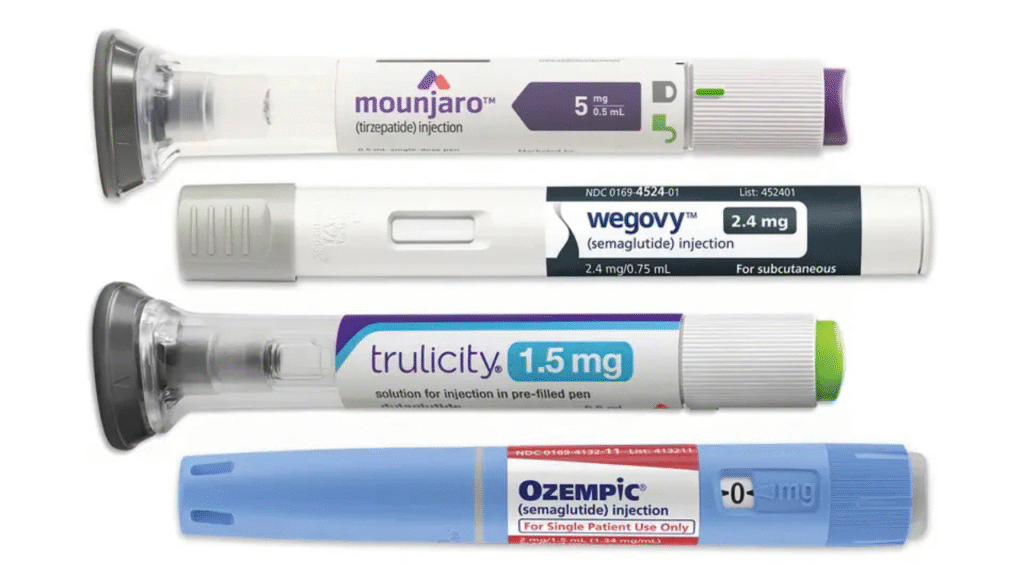Why Are Fat Activists Railing Against ‘Safe’ Weight-Loss Drugs?

Introduction
Weight-loss drugs, in particular, the new class of GLP-1 medications like Ozempic and Wegovy, have seized the public’s imagination for their extraordinary capacity to assist people to lose weight rapidly and effectively. But while the diet gains more and more adherents and is lauded by some in the medical community, there is also significant backlash from fat activists and fat acceptance proponents. To understand why fat activists take issue with weight-loss drugs, unpacking complex health stigma, nuances of body positivity, societal myths about fatness, and concerns of risk and medicalization is key. This essay examines the rationale for that opposition, by interrogating the social and medical issues underpinning a provocative debate in 2025.
The Emergence of Slimming Drugs and Popular Response
GLP-1 Drugs: The Next Big Weight Loss Medications
- GLP-1 medications act like natural hormones to suppress appetite and increase feelings of fullness.
- Clinical studies demonstrate that users can expect to lose 15% to 25% of their body weight.
- They also benefit blood sugars, blood pressure, and other cardiovascular markers.
- Their rapid acceptance has inspired as much hope as controversy.
Public and Celebrity Influence
- The advocacy of high-profile endorsers has helped legitimize the use of weight-loss drugs.
- The body image, health, and thinness ideals debate has been promoted in the media.
Why the Fat Activists Who Struggle to Get By Oppose Safe and Effective Weight-Loss Drugs
1. Fatpositivity and Anti-Weight Bias
Fat activists claim that fat is not necessarily unhealthy or inherently abnormal, and that weight is a personal dimension in which people have certain rights. “Overweight” and “obese” are frequently considered stigmatizing terms that may lead to discrimination.
- Some activists say weight-loss drugs only perpetuate the notion that fat bodies are “broken.”
- There is a pushback against the narrative of fatness as a disease or moral failure.
2. Fear of Increased Social Pressure
The explosion in demand for weight-loss drugs is another force that can make even fat people feel squeezed into ever-tighter beauty norms.
- The story of “anyone can be thin if they just take the drug” denies the systemic and structural contributions to health.
- Activists fear they could contribute to fueling fat-shaming and mental health burdens, including shame, guilt and isolation.
3. Medical Concerns and Long-Term Risks
- There is skepticism about the long-term safety and effects of GLP-1 drugs.
- Diet pills are also stereotyped as “quick fixes,” derailing any kind of whole health thinking.
- The fear of dieting and regaining weight (“yo-yo dieting”) still persists.
4. Economic and Access Inequality
The treatments are generally available only to richer people; this is unequal.
- Fat activists argue that affordability and access stand in the way of equality in healthcare for marginalized communities.
- There is a fear that we are supporting costly medical interventions and neglecting the social determinants of health.
5. Taking Our Eyes Off the Health at Every Size (HAES) Ball
- Fat activism promotes Health at Every Size principles like self-acceptance, fitness irrespective of size, and eliminating weight stigma.
- Weight loss meds are anathema to HAES theory in that they continue to place emphasis on weight loss as opposed to well being.

The Wider Social And Medical Discussion
When Body Positivity Meets the Medicalization of Fatness
Body positivity says you are to be accepted and respected no matter what size.
- The medical model reads fatness as a risk factor or clinical condition that should be medically treated.
- These contradictory perceptions cause problems in public debate and health policy.
Ethical Considerations and Stigma
- Some bioethicists warn of off-label or disproportionate use of weight-loss drugs.
- Stereotypes about drugs can make patients feel like “cheaters” or guilty.
Sampled and Naunted by the Fat Activism Movement
- GLP-1 medications worsen these public narratives that people’s bodies don’t work and need to be “fixed,” says Tigress Osborn of NAAFA.
- Marilyn Wann calls attention to new activism workloads that come with cycles of hope and disappointment from diet regimens.
- Other activists also recognize that some people genuinely benefit from these drugs but also argue here that system change is what matters.
Internal Resources
Health Advocacy and Support Services
Workshop: Let’s empower our minds and bodies!
Holistic Nutrition and Lifestyle Coaching
External Resources
- Wall Street Journal: Weight-Loss Drugs Have a Surprising Foe
- Stanford Gender Studies on Weight-Loss Drugs and Bias
Frequently Asked Questions (FAQ)
Why do fat activists protest weight-loss drugs?
Fat activists are against weight loss drugs because they think the drugs perpetuate harmful social stigma, make social life more difficult for the fat, and keep people from accepting and respecting all bodies regardless of size.
Do weight loss drugs violate the body positivity movement?
In general, anti-fat activists believe weight-loss drugs conflict with the tenets of body positivity, which teaches self- acceptance at every size, not size reduction above all.
What health risks are associated with GLP-1 weight-loss drugs?
So there are concerns about long-term effects and the safety profile of GLP-1 drugs, something that some fat activists use to warn against thinking of these drugs as a “miracle cure”.
What do fat activists think about society’s pressure about weight?
Activists argue that weight-loss drugs can also increase societal pressure in which thin equals worthy, which can create mental and emotional distress for fat people.
Are weight-loss medications available to everyone?
No, not really — it’s typically available unequally, with cost and healthcare coverage curbing access and feeding into health disparities that have the fat acceptance community howling with frustration.
And what are the alternatives that people, particularly fat activists put forward for health?
Fat activists promote an inclusive approach to overall health, being more interested in promoting healthy behaviors than the weight of an individual.
Conclusion
The controversy over fat activists resisting weight-loss drugs has exposed some of the profound tensions between medical progress and social justice, public health and personal identity. Although GLP-1 drugs do pose verifiable health benefits for some, for a number of fat activists, the rise of this treatment risks reinforcing harmful stereotypes and stigmatizing narratives attached to fatness and fat people. Respecting physical autonomy and managing public health are going to remain difficult public issues. Such understanding leads to more empathetic and thought-provoking conversations on health, weight, and acceptance in 2025 and beyond.
For more insights visit exploreinfoworld.com











